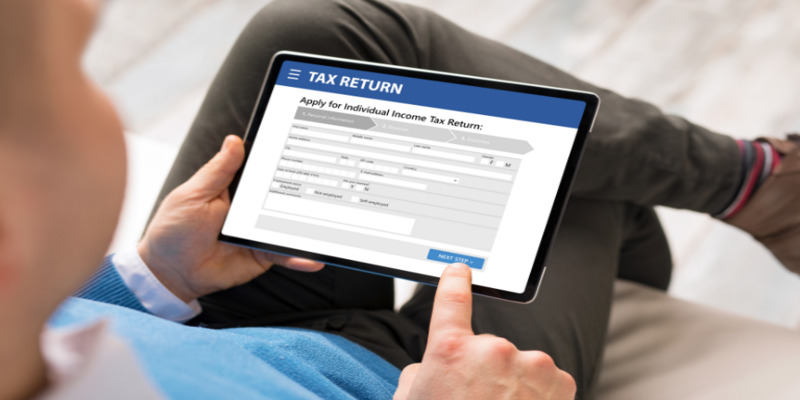To File or Not to File: Navigating Tax Season 2023
Triston Martin
Oct 02, 2023
Tax season can be a confusing time of year for many people. With changing tax laws and various exemptions, it's not always clear who needs to file a tax return and who doesn't. In this article, we'll simplify the process and help you understand whether you should file a tax return for 2023.
Who Needs to File a Tax Return?
Filing a tax return is an annual ritual for most adults in the United States. However, not everyone is required to do so. Let's dive into the details and determine if you need to join the tax-filing party this year.
Income Thresholds
Your income is the most crucial factor in determining whether you need to file a tax return. The IRS sets income thresholds, and if your income falls below these limits, you typically don't have to file. For tax year 2023, these thresholds are as follows:
Single Filer: If you're a single filer and your 2023 gross income is less than $12,950, you generally don't need to file a federal tax return.
Married Filing Jointly: The threshold for married couples filing jointly is $25,900. You likely don't need to file if your combined gross income is less than this amount.
Head of Household: If you qualify as a head of household, the income threshold is $19,400.
These income thresholds are subject to change, so it's essential to check the IRS website or consult a tax professional for the most up-to-date information.
Age Matters
Your age also plays a role in determining whether you need to file. Here's how it breaks down:
Under 65: If you're under 65, you'll generally need to file if your income exceeds the abovementioned thresholds.
65 and Older: The income limits are slightly higher if you're 65 or older. For single filers, it's $14,300; for married couples filing jointly, it's $27,800; and for heads of households, it's $20,650.
Filing Status

Your filing status is another factor to consider. The most common filing statuses are single, married filing jointly, married filing separately, and head of household. Different statuses come with different income thresholds, so choose the one that applies to your situation.
Dependents
You might not need to file a tax return if you're someone's dependent, whether a child or an adult. However, there are rules regarding dependents' income and filing requirements. If you earn more than a certain amount or have unearned income, you may need to file even if you're a dependent.
Special Cases
Certain circumstances can change the filing requirements. For instance:
Self-Employment: If you're self-employed and your net earnings are $400 or more, you must file a tax return, regardless of other factors.
Healthcare: The Affordable Care Act introduced the requirement to have health coverage or pay a penalty. While this penalty has been reduced to zero for most states, some states still have individual mandates. If you live in one of these states and don't have health coverage, you might need to file a return.
Tax Credits: You may want to file a tax return even if you're not required to if you're eligible for tax credits, such as the Earned Income Tax Credit (EITC) or the Child Tax Credit. Filing can get a refund even if you didn't pay taxes yearly.
State Taxes: Don't forget about your state's tax requirements. Each state has its rules, and even if you don't owe federal taxes, you may owe state taxes.
International Considerations
The rules can get more complicated if you're a U.S. citizen living abroad or a non-U.S. citizen living in the United States. The IRS has specific guidelines for international taxpayers, including expatriates and foreign students. Understanding your unique situation and complying with the IRS regulations is essential.
Why You Might Want to File a Tax Return?
While some individuals may not be required to file a tax return, there are several reasons why you might want to consider filing voluntarily:
Refunds and Tax Credits
Filing a tax return can result in a refund if you've had federal income tax deducted from your earnings or have made estimated tax payments during the year. This refund can offer a valuable financial benefit, especially if you've paid more in taxes than required.
Additionally, if you qualify for refundable tax credits like the Earned Income Tax Credit (EITC) or the Child Tax Credit, you could receive more money back than you paid in taxes.
Documentation for Loans and Financial Aid
Filing a tax return can be essential when applying for loans or financial aid, whether for yourself or a family member heading off to college. Many lenders and institutions require tax returns to verify income and financial stability.
Retirement Contributions

Contributing to a retirement account, such as a Traditional IRA or a 401(k), can lower your taxable income. If you've made such contributions during the tax year, filing a return ensures you receive the appropriate tax benefits.
Social Security Benefits
If you're receiving Social Security benefits, your tax situation can impact the taxation of these benefits. Some of your Social Security income may be taxable depending on your total income. Filing a return helps determine the right amount of taxation.
Self-Employment and Business Deductions
If you're self-employed or own a business, filing a tax return allows you to report your income and claim deductions related to your business expenses. This can help reduce your overall tax liability.
The Bottom Line
Navigating tax season doesn't have to be an overwhelming experience. Understanding whether you need to file a tax return for tax season 2023 boils down to factors like your income, age, and filing status. Remember that while you may not be required to file, there are often compelling reasons to do so voluntarily, such as the potential for refunds, tax credits, and documentation for various financial transactions.







